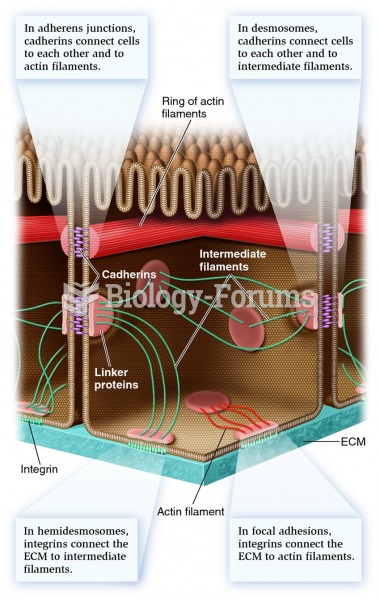|
|
|
More than 34,000 trademarked medication names and more than 10,000 generic medication names are in use in the United States.
When blood is exposed to air, it clots. Heparin allows the blood to come in direct contact with air without clotting.
An identified risk factor for osteoporosis is the intake of excessive amounts of vitamin A. Dietary intake of approximately double the recommended daily amount of vitamin A, by women, has been shown to reduce bone mineral density and increase the chances for hip fractures compared with women who consumed the recommended daily amount (or less) of vitamin A.
Nitroglycerin is used to alleviate various heart-related conditions, and it is also the chief component of dynamite (but mixed in a solid clay base to stabilize it).
Nearly 31 million adults in America have a total cholesterol level that is more than 240 mg per dL.







